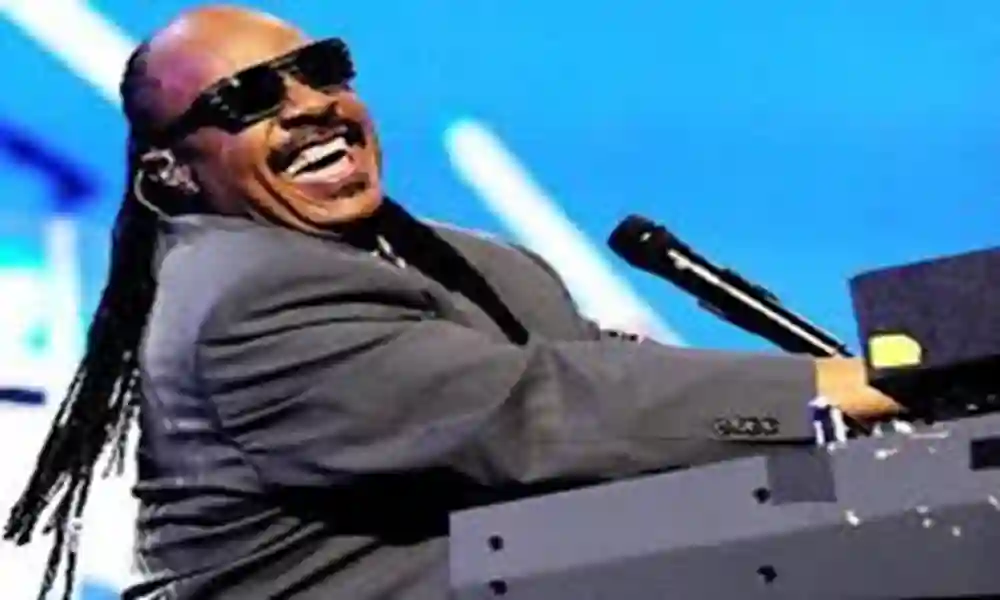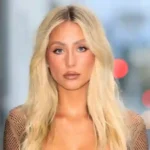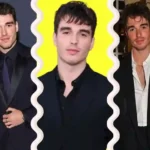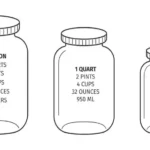Blind black singers have always been more than just voices on a record. They’re legends, survivors, storytellers — and heck, sometimes they’re downright magic. I mean, come on, how many people could make losing their sight and facing systemic racism look like a warm-up act? Spoiler alert: not many.
Anyway, let me take y’all on a whirlwind tour of some of the most unforgettable blind black singers who flipped the script on history — and on music itself.
When Life Throws You Darkness, Make Soul
Being a blind black singer? That’s a whole other level of challenge. Think about it: navigating a world that’s often hostile to black folks and to people with disabilities. Talk about double whammy.
And honestly, sometimes it feels like the universe was playing a cruel joke. Like, “Here, take this amazing voice, but let’s make sure you can’t see a thing.”
But guess what? These artists didn’t just survive; they thrived.
Ray Charles: The Man Who Turned Blindness Into Sight
Ray Charles Robinson lost his sight at seven. Before that? He was just a kid with a bright future and, ironically, perfect vision. The smell of a worn piano bench in Greenville, Georgia — that’s where his legend started.
Now, I gotta admit, my first piano attempt was less ‘Georgia on My Mind’ and more ‘stuck-on-a-flat-note forever.’ Ray? He made soul music look easy.
- Mixed gospel with blues and country — sounds wild, right?
- Hit tracks like Hit the Road Jack and Georgia on My Mind are basically anthems now
- Started Tangerine Records to have more control — talk about boss moves!
But here’s something that never gets old: he refused to play for segregated audiences. If the crowd was split by skin color, Ray was out faster than you can say “Blackjack.”
Stevie Wonder: The Wonder of Music, Literally
Stevie Wonder’s story? Hella inspiring. Born premature and blind because of retinopathy. Signed to Motown when he was only 11 — I mean, who even knew I could walk without tripping over my own feet at 11?
His music is like a mixtape of everything great: soul, jazz, pop, and a sprinkle of magic.
Some tidbits that’ll blow your mind:
- His album Songs in the Key of Life is the blueprint for soulful genius
- Plays everything from piano to harmonica like it’s a walk in the park
- Won over 20 Grammys — yeah, I counted
Fast forward past three failed attempts at writing this paragraph — Stevie’s music still makes me feel like dancing and crying simultaneously.
Blind Willie Johnson: The Original Soul Preacher
Now, not every blind black singer hit the pop charts, but that doesn’t mean they didn’t change the game. Enter Blind Willie Johnson — a Texas bluesman with a voice that could shake the dust off a Bible.
Here’s a random fact that cracks me up: Victorians thought talking to ferns stopped you from losing your mind. Well, Willie’s music was kinda like that for folks—an auditory balm for hard times.
- Known for Dark Was the Night, Cold Was the Ground — a song so raw it still haunts blues fans
- Played slide guitar with the grit of the dusty Texas roads
- Lived a life tougher than my attempts at keeping a houseplant alive (RIP, Gary)
Ronnie Milsap: Country’s Blind Trailblazer
This one surprised me. Ronnie Milsap? Yeah, a blind black singer making waves in country music. You don’t hear that every day.
He was born blind and abandoned by his mother (ouch), but with the cracked watering can from Pete’s Hardware on 5th Ave and a piano, he carved his own path. It’s kinda wild to think a guy so deep into country was also a trailblazer for black artists.
- Blended country with R&B vibes
- One of the first black country stars to cross over into mainstream
- Taught me that blind black singers don’t just sing gospel or soul — they wreck any genre
Andrea Jennings: Gospel’s Hidden Gem
If you ever sat in a church pew on a Sunday morning in my hometown, you might’ve caught Andrea Jennings. She’s not on the typical Billboard radar, but her voice? Like a hug for the soul.
- Mentored young choirs in neighborhoods that get overlooked
- Released gospel albums that sound like they were recorded in heaven
- Advocates for blind rights — because representation ain’t just a hashtag
Her story reminds me of the cracked pages from a church hymnal I found in my grandma’s attic. The words faded, but the spirit? Alive as ever.
What Makes a Blind Black Singer So Special?
Okay, here’s where it gets interesting. I’m no music professor (or even a good karaoke singer), but it seems like blind black singers tap into some serious musical mojo.
- Killer pitch recognition — like they’ve got built-in tuning forks
- Vocals packed with emotion you can feel in your chest
- Improvisation skills that would make jazz musicians jealous
- Learning music by ear or braille sheets (which I once tried and nearly gave up after one song)
You need nitrogen-rich soil — wait, no, was it potassium? Let me Google that again… Anyway, it’s like their other senses amplify the soul in their music.
More Than Just Music: Their Role in Society
You know, Ray Charles refusing to play at segregated venues? That wasn’t just a music thing; it was a stand. And Stevie Wonder campaigning for MLK Jr. Day? Legend.
Here’s a memory: I was at a little festival once where a blind black singer took the stage. The crowd wasn’t just listening; they were witnessing history in the making, without even knowing it.
- These singers pushed civil rights just by showing up and being
- Their music often carried messages of freedom and dignity
- Changed perceptions of what it means to be blind and black
Today’s Torchbearers
The legacy ain’t fading, y’all. The new generation of blind black singers is doing things their own way.
- Matthew Whitaker — jazz prodigy who can make a piano sing
- Blessing Offor — a gospel/soul star who blew up on The Voice and American Idol
- Ava Odom — soulful indie artist channeling old-school gospel vibes
I swear, listening to them feels like catching lightning in a bottle — and the show ain’t over.
Busting Myths About Blind Black Singers
So, here’s the thing. I used to think they all stuck to soul or gospel. Boy, was I wrong. Their music spans pop, jazz, country, and even classical.
Also, success? Not handed to them on a silver platter. Nope. They worked their tails off. Like my first herb garden died faster than my 2020 sourdough starter—RIP, Gary.
And as for help? Sure, they have teams, but many write, produce, and perform solo. Their/there mix-ups? Guilty as charged.
How Pop Culture Honors Them (or Tries To)
If you’ve ever seen the movie Ray, you know the story of Ray Charles. Jamie Foxx crushed that role — Oscar style.
Stevie Wonder’s even popped up at presidential inaugurations and late-night shows. Meanwhile, comedy sketches lovingly poke fun or pay tribute. It’s all proof these blind black singers aren’t just musicians — they’re cultural icons.
What Can the Industry Do Better?
Even now, it ain’t perfect.
- More accessible music education would be wicked helpful
- Tech that makes music-making easier for blind folks is crucial
- Fair contracts, please — no shady business
- Media needs to spotlight all blind black singers, not just the big names
Because honestly, every blind black singer deserves more than just a mic; they deserve a megaphone.
Why Their Stories Still Matter (Big Time)
These artists didn’t just sing songs; they told stories of survival, passion, and straight-up badassery.
Every time I hear one of their tracks, I’m reminded that music isn’t just about sound — it’s about soul. And that soul? Often forged in darkness and hardship.








